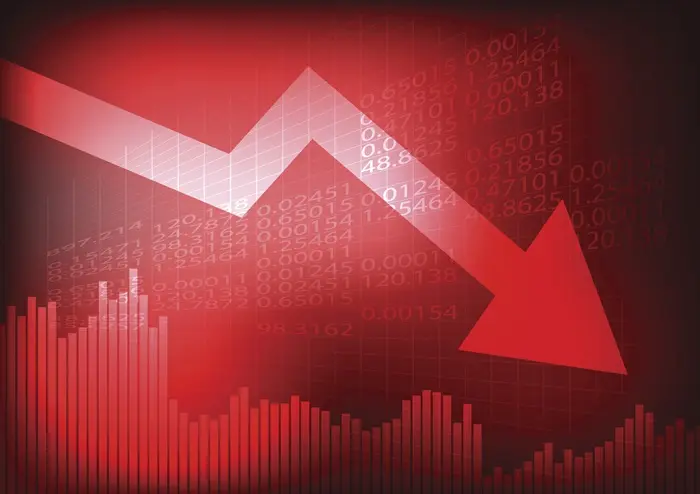The energy sector has long been a cornerstone of global markets. Energy stocks, representing companies involved in the exploration, production, and distribution of energy, are crucial indicators of economic health. These stocks, which include companies involved in oil, natural gas, renewable energy, and other forms of power generation, often perform well when demand for energy is high and supply is stable.
However, in recent times, energy stocks have been experiencing significant declines. This downturn has raised concerns among investors and analysts alike, prompting questions about the factors contributing to the drop in energy stock prices. In this article, we will explore the reasons behind the decline in energy stocks, focusing on key factors such as global supply and demand, geopolitical events, market volatility, environmental policies, and the impact of technological advancements.
Global Supply and Demand Dynamics
One of the primary drivers of energy prices and energy stocks is the balance between supply and demand. When demand for energy outpaces supply, prices typically rise, benefiting energy companies and their stock prices. Conversely, when supply exceeds demand, energy prices fall, leading to a decline in energy stocks. Recent shifts in both supply and demand dynamics have contributed to the downturn in energy stocks.
1. Overproduction of Oil and Natural Gas
For many years, the global energy market has been influenced by oil and natural gas production levels, with major oil producers like the United States, Russia, and Saudi Arabia playing pivotal roles. At times, these countries have ramped up production to meet growing demand, but at other times, they have overproduced, resulting in a supply glut.
In recent years, the U.S. shale oil boom has led to a significant increase in oil and natural gas production, which, at times, has outpaced global demand. This overproduction has contributed to a global surplus of oil and natural gas, causing prices to fall and impacting energy stock performance. While OPEC and other global producers have attempted to curb production to stabilize prices, the increased supply from non-OPEC countries, particularly the U.S., has kept pressure on prices.
2. Demand Slowdowns and Economic Uncertainty
Global demand for energy is closely tied to the health of the global economy. During periods of economic growth, energy demand rises as industrial activity increases, transportation needs grow, and consumption expands. Conversely, during economic slowdowns or recessions, energy demand tends to decline, as companies reduce output, consumers drive less, and overall economic activity slows.
The COVID-19 pandemic is a prime example of how sudden economic disruptions can cause significant drops in energy demand. During lockdowns and social distancing measures, industrial activity sharply decreased, and travel restrictions led to a dramatic reduction in fuel consumption. Although the global economy is gradually recovering, demand has not fully returned to pre-pandemic levels, contributing to the decline in energy stock prices.
3. Changes in Energy Consumption Patterns
The energy landscape has been shifting in recent years due to the increasing adoption of renewable energy sources and the growing focus on environmental sustainability. Wind, solar, and other forms of clean energy are gaining market share, while fossil fuels, such as coal and oil, are experiencing a gradual decline in demand.
As the world moves toward cleaner energy solutions, the demand for traditional energy sources is being reduced. This shift in energy consumption patterns is affecting the profitability of companies that rely heavily on fossil fuels. As investors become more focused on sustainability and environmental, social, and governance (ESG) factors, traditional energy companies may struggle to maintain stock prices, especially if their future prospects are clouded by increasing regulation and decreasing demand for their products.
Geopolitical Events and Market Volatility
The energy market is highly sensitive to geopolitical events. Conflicts, sanctions, and political instability in major energy-producing regions can have a significant impact on both supply and prices, thereby affecting energy stocks. Several geopolitical factors have contributed to the decline in energy stocks in recent years.
1. Ongoing Trade Wars and Tariffs
Trade wars and tariffs between major economies, particularly the U.S. and China, have had far-reaching consequences on global markets, including the energy sector. These trade tensions have led to uncertainty about the stability of global supply chains and have disrupted the flow of goods, including energy resources.
The imposition of tariffs on oil, natural gas, and renewable energy technologies has also contributed to higher costs for energy producers. This has, in turn, impacted energy stock prices, as investors worry about the ability of energy companies to maintain profitability amid rising costs and reduced market access.
2. Political Instability in Key Energy-Producing Regions
Political instability in key energy-producing regions, such as the Middle East, Venezuela, and parts of Africa, has contributed to volatility in global energy markets. For example, tensions between the U.S. and Iran have raised concerns about potential disruptions to oil shipments through the Strait of Hormuz, a vital shipping lane for global oil supplies. Similarly, instability in Venezuela has led to a decline in oil production, further exacerbating supply disruptions.
These geopolitical uncertainties can lead to significant fluctuations in oil and natural gas prices, which, in turn, affect energy stocks. Energy companies operating in regions with political risks face increased operational challenges, making them less attractive to investors.
3. Sanctions on Russia and Energy Supply Shocks
The imposition of sanctions on Russia has had a profound effect on global energy markets, particularly in the wake of the ongoing conflict in Ukraine. Russia is one of the world’s largest energy producers, and disruptions to its energy exports, particularly natural gas and oil, have caused significant supply shocks.
These sanctions have led to rising energy prices in Europe and other regions, which has put pressure on the global economy. While some energy companies may benefit from higher prices, the uncertainty surrounding the ongoing conflict and the potential for further disruptions has created instability in the market, contributing to declines in energy stocks.
Environmental Policies and Regulation
Environmental policies and regulations are becoming increasingly important factors influencing the energy sector. Governments around the world are implementing stricter emissions regulations, carbon pricing mechanisms, and renewable energy mandates to combat climate change and reduce the environmental impact of energy production.
1. Stricter Environmental Regulations
As global awareness of climate change grows, governments are imposing more stringent regulations on carbon emissions from energy companies. These regulations often result in higher compliance costs for energy producers, particularly those in the fossil fuel sector. Energy companies must invest in cleaner technologies, such as carbon capture and storage (CCS) and renewable energy projects, to meet these requirements.
The increasing regulatory burden on traditional energy companies can reduce profitability and hinder growth, leading to declines in energy stock prices. Investors may be wary of investing in companies that face significant regulatory hurdles or whose business models are based on carbon-intensive energy production.
2. Transition to Renewable Energy
As the global shift toward renewable energy accelerates, many investors are increasingly focused on companies involved in clean energy. Renewable energy sources like wind, solar, and hydroelectric power are becoming more cost-competitive with fossil fuels. In addition, companies in the renewable energy sector are benefiting from government incentives and growing consumer demand for clean power.
This shift is putting pressure on traditional energy companies to transition to cleaner energy sources or risk being left behind. Investors are increasingly allocating capital to renewable energy companies, leading to capital outflows from traditional energy stocks. As a result, energy stocks, particularly those in the fossil fuel sector, may experience declines as they are viewed as less attractive investments.
Technological Advancements and Energy Transition
Advances in technology are reshaping the energy landscape, and these changes are having a profound impact on the energy market. Innovations in energy storage, renewable energy production, and energy efficiency are driving a transition toward cleaner, more sustainable energy systems. These advancements are influencing investor sentiment and contributing to the decline in energy stocks.
1. Improved Energy Efficiency
Technological advancements in energy efficiency are reducing overall energy consumption, which can dampen demand for traditional energy sources. As energy-efficient technologies become more widespread in industries, transportation, and homes, the demand for oil and gas may decrease, putting downward pressure on prices and energy stock values.
2. Breakthroughs in Energy Storage
Energy storage technologies, such as advanced batteries, are critical to the integration of renewable energy sources into the grid. As these technologies improve, they make it easier to store excess energy generated by wind and solar power, reducing reliance on fossil fuels. Energy storage is expected to play a significant role in the future of the energy sector, and companies involved in these technologies may benefit as traditional energy companies face increased competition from renewable energy sources.
Conclusion
Energy stocks are facing a challenging environment, influenced by a range of factors including supply and demand imbalances, geopolitical risks, regulatory pressures, and technological advancements. While the energy sector has long been a key driver of global economic growth, the transition to a cleaner and more sustainable energy future is reshaping the market.
The decline in energy stocks can be attributed to a combination of factors, including overproduction, slowing demand, political instability, and the growing emphasis on environmental sustainability. As the world moves towards renewable energy sources, traditional energy companies are facing increased competition, higher costs, and greater regulatory challenges.
Despite the current downturn, there are opportunities within the energy sector for investors who are willing to adapt to the changing landscape. By focusing on companies that are investing in renewable energy, energy efficiency, and emerging technologies, investors can position themselves to benefit from the transition to a low-carbon economy.
In conclusion, the decline in energy stocks is not necessarily a sign of the end of the sector but rather a reflection of the ongoing transformation of the global energy market. The energy transition is an evolving process, and investors who understand the dynamics at play can navigate these challenges and find opportunities for long-term growth.
Related topics:

































